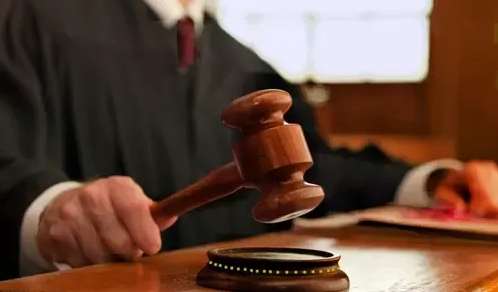About two weeks ago U.S. District Judge Loretta Biggs of North Carolina issued an injunction. Her injunction bars the Trump administration from implementing a new policy. The policy changes how the government calculates the duration of an illegal immigrant’s unlawful presence in the country.
Injunctions are a legal tool being used to set political policy
An injunction is the correct legal tool to stop someone from doing something. Biggs had a choice in how broad that injunction should be. Should it apply only to the individual case? Should it apply to the agency involved? Does the importance rise to nationwide applicability? Is the court system a policy-making branch of the federal government?
She could use an injunction to prevent the government from using the new calculation on the plaintiffs who sued. That’s not what she did. She could use a so-called nationwide injunction. Going nationwide bars the government from using the new calculation against anyone, anywhere. Until the injunction is appealed, lifted or the administration gives up enforcing the law. Is that the intention of this court?
Biggs chose to issue a nationwide injunction. Nationwide injunctions are better called “universal” or even “absent-party” injunctions. They are not limited either by their geographic scope or the parties they cover. Instead, they stop the government from enforcing a law written by the legislative body. It might also be enforced against a regulation with the force of law. Is the judiciary part of our law enforcement system or part of our political system?
The controversy
These universal injunctions are controversial. U.S. Attorney General William Barr denounces them. He did so in a speech last May. Deputy Attorney General Jeffrey Rosen did so in a speech this month. Justices Clarence Thomas and Neil Gorsuch have criticized them as well. So, what exactly are these strange things, and are they legal?
Let’s start our analysis with the U.S. Constitution. The Constitution defines the judicial branch’s role in our system of government. Judges don’t pass laws. Judges do not set broad policies. You see those things are the responsibility of the other branches of government.
According to Article III of the U.S. Constitution, judges decide “Cases” and “Controversies.” Those things are legal disputes between specific parties. Civil suits occur between private parties. Criminal cases involve the government and individuals standing accused of violating criminal laws.
These disputes are brought by the parties. Judges settle them for the parties applying the rules of evidence, procedure and the applicable law.
It can make sense for a judge issue an injunction in the process of deciding a particular case. When they do so the injunction should not cover more than is necessary to the case at hand.
Precedent
Precedent, if used when a plaintiff successfully challenges a law as unconstitutional, would cause the judge most often to block the government from enforcing the law against that specific plaintiff. It is not the job of district courts to completely wipe that law from the books.
These days the judiciary has grown more powerful than America’s Founders intended. Since the 1960s, this has included issuing universal injunctions. This type of injunction has become increasingly common over the past few decades. Political activists try to enlist judges to make widespread policy changes. Those are things the legislative or executive branches are designed to handle. This is constitutional overreach.
The issues
These universal injunctions cause a host of problems. They are trouble for our constitutional government, for the legislative branch, the executive branch and for the judiciary itself. They empower judges to exercise power over the entire government. The judiciary was intended to decide each case for just the parties who brought a case before them.
Universal injunctions give individual district judges far more power than they ought to have. It matters less and less that 1,000 judges have previously upheld a law. It matters less and less previous judges were able to limit their injunctions to the parties in specific cases. These days all it takes is one judge granting a universal injunction to prevent enforcing a law anywhere.
They undermine public confidence in the judiciary. They give activists judges near limitless power to undo the laws and policies. This undermines the functioning of the accountable branches of government. Think of it this way: infamous activist judge, the deceased Stephen Reinhardt, once joked of his lawless decisions that “they [the Supreme Court] can’t catch them all.”
Finally, universal injunctions lead to what Gorsuch calls “rushed, high-stakes, low-information decisions.” Oftentimes, judges issue universal injunctions at the beginning of a case, even before resolving legal and factual issues.
Emergency basis
When lower courts overreach the Justice Department often appeals on an emergency basis. That’s not good. It doesn’t give the higher courts the time they need to make sure they get the answer right. The process normally has lower courts, lawyers, and legal scholars discussing and debating the matter. That debate sharpens the arguments and refines the issues. Emergency appeals eliminate that.
The criticism of universal injunctions is simmering. It is now likely that the Supreme Court will step in. On Jan. 17, the Supreme Court accepted the case of Trump v. Pennsylvania. One of the questions presented is whether the court of appeals erred. It affirmed a universal injunction striking down regulations. The regulations would have allowed employers to opt-out of providing contraceptive coverage insurance plans.
The high court may take this opportunity to end the practice of issuing universal injunctions. It should remind the lower courts that their power is limited. Judges are there to resolve cases and controversies. They are not demi-gods sitting in judgment over the rest of the government. Question: What is the difference between God and a federal judge? God knows that He isn’t a federal judge. Why should federal district court judges be able to issue nationwide injunctions? Well, maybe they shouldn’t.
